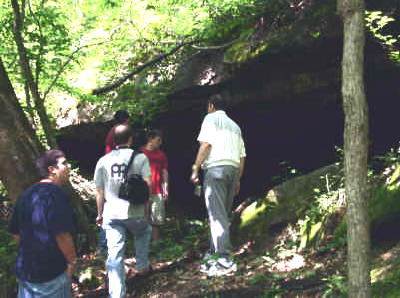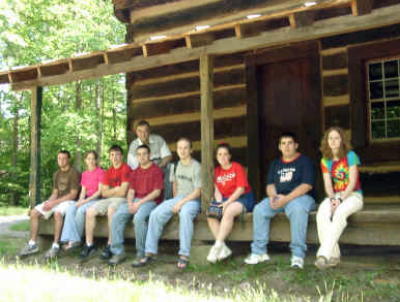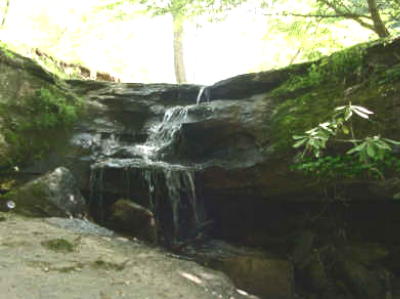STUDENTS TOUR HISTORIC BULLTOWN SITE - Civil War Connections To Calhoun



Calhoun High students enrolled in History 207 recently toured the Bulltown Historic Site, operated by the US Army Corps of Engineers near Burnsville Lake.
The site centers around the Moses Cunningham homestead and includes a museum housing Native American, pioneer and Civil War material. There are several buildings saved from being inundated by the Burnsville Lake. lake; and a Civil War battlefield. The Bulltown civil war area was important to Native Americans and settlers because of to the numerous salt deposits and because the Weston-Gauley Bridge Turnpike crossed the Little Kanawha River there.
Since the turnpike was the only main north-south road connecting the Clarksburg and the Kanawha Valley, the Union army built a fort on a high hill overlooking the covered bridge.
This fort was manned by both Ohio and West Virginia units, including Company C of the 11th WV Infantry led by Captain James Simpson of Parkersburg. Many soldiers in Company C were from Calhoun County.
On October 13, 1863, a force of approximately 700 Confederates attacked the fort. Their leader was Col. William Jackson of Weston, a cousin of Gen. Thomas J. "Stonewall" Jackson.
Prior to the war, Col. Jackson had been a circuit judge of a district that included Calhoun County.
Among the CSA units was Company A, 19th Virginia Cavalry, primarily comprised of soldiers from Calhoun County under the command of Major George Downs, a Calhoun native.
The battle began at 4:30 am and lasted about 12 hours. Despite early successes, the more numerous Confederates were unable to dislodge the Yankees from their trenches and withdrew having lost several men.
Courtesy of Calhoun High School